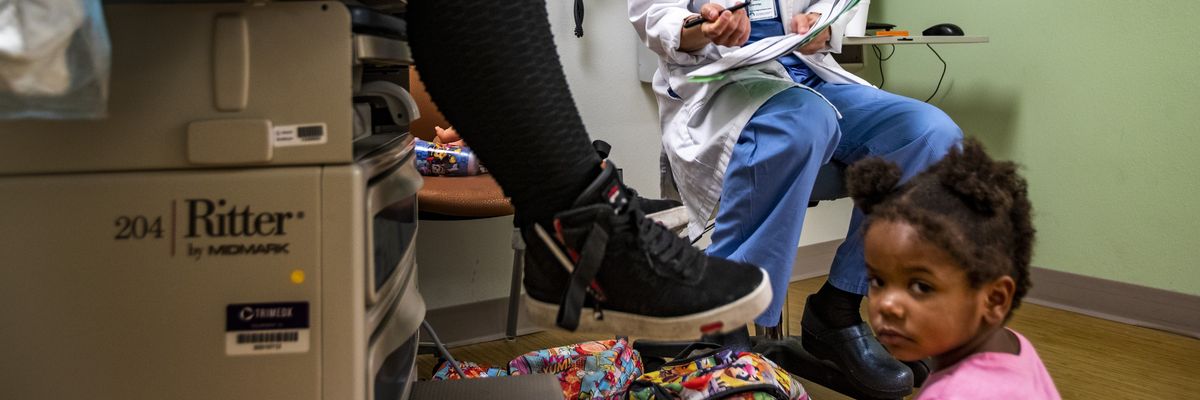The Medicaid purge that
began earlier this year after Congress agreed to end pandemic-era coverage requirements has now impacted more than 2.1 million people across the United States.
According to KFF's new
analysis of the latest publicly available state data, at least 2,181,000 people in 30 states and Washington, D.C. have been removed from Medicaid since large-scale disenrollments started in April.
In a bipartisan deal late last year, Congress and the Biden White House gave states the go-ahead to resume Medicaid eligibility checks that were paused during the coronavirus pandemic.
Particularly alarming to advocates is that, according to state data, an overwhelming majority of the Medicaid disenrollments thus far have been for procedural reasons, such as a paperwork mistake or missed deadline—not because people were deemed ineligible to continue receiving benefits on the basis of their income or other factors.
"Absolutely terrible," Joan Alker, executive director of the Georgetown Center for Children and Families,
wrote in response to the updated figures.
Republican-led Florida and Arkansas have removed more people from Medicaid than any other state included in KFF's analysis—303,000 and 217,000, respectively. Residents of both states have expressed confusion and alarm over the disenrollment process, and some have said they've been stripped of coverage erroneously or without receiving any notice.
"We never got anything telling us to recertify," one Florida resident whose children were recently removed from Medicaid
said last month. "We never got anything saying we were booted out of the system."
As Jordan Zakarin reported Tuesday, "For those who have received the appropriate redetermination forms, trying to follow their instructions, which read like a bureaucratic Choose Your Own Adventure, has often proven futile."
Neil Sealy, an organizer for Arkansas Community Organizations, told Zakarin that he spoke with one daycare worker who has gotten caught in the bureaucratic maze.
"The state just can't get her information right, so one of her children is on [the Arkansas Medicaid program for kids], but apparently the other one was not renewed," Sealy said. "She called the Medicaid call center and didn't get an answer. She's gone down twice to the local [Department of Health Services] office. Turned in stuff, got it stamped, but it's still not changed. How many thousands of people are having to deal with this?"
KFF's analysis shows that in the six states that report Medicaid disenrollments by age—Arkansas, Arizona, Virginia, Indiana, Oklahoma, and Washington—roughly a third of those removed from the lifesaving program since April are children, a disaster for families and a profit opportunity for
The Biden administration has raised concerns about the speed with which states are gutting their Medicaid rolls but has yet to demand a halt to the coverage terminations, which could ultimately affect an estimated 15 million people nationwide.
The Washington Post reported late last month that the Biden Health and Human Services Department "granted states several new actions they could take to minimize undue coverage losses as the pandemic-era policy preventing people from losing Medicaid came to an end this spring."
"Since then, at least one state—Michigan—announced it was taking up the government's offer to impose a one-month delay on terminating certain people from the safety-net program who don't return the necessary paperwork, giving state officials more time to conduct additional outreach," the Post added. "Other states may follow suit. Roughly 10 more states are potentially interested in doing so, though they're still in the throes of evaluating the move."




